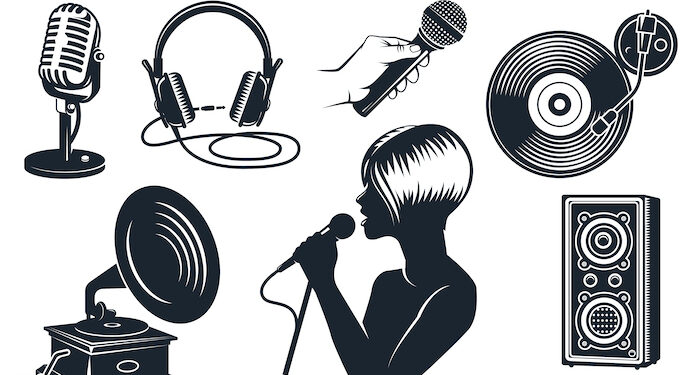Radio in South Africa celebrates its centennial this year –stamping itself as a stalwart and proving its enduring resilience – despite ongoing threats and challenges.
2024 is a milestone year for South Africa, as we headed to the polls for our seventh free and fair national election, while marking 30 years of democracy – and 30 years of independently regulated broadcasting.
And radio, in its centennial, proves its enduring relevance to its audiences, and its communities.
Votes are in…
2024 is also the year in which global debates on the ethics of artificial intelligence are high on the agenda.
2024 has also been dubbed The Year of Elections – and The Year of AI Elections – and there is greater scrutiny of the protection of users of online social media platforms, and growing concern that online misinformation and disinformation campaigns will impact the outcome of the national elections.
It’s therefore encouraging to note that platforms such as Meta, Google and TikTok partnered with the IEC to curb disinformation ahead of the elections.
Radio, as a highly responsible and regulated traditional media format, has long played an active role in maintaining balance in its reportage, and will continue to play a moderating and informative role.
A wider landscape
It’s hard to believe that 30 years ago, SABC radio services dominated the airwaves. Today there are over 200 community radio licensees, and more than 40 commercial and public radio services. The emergence of online digital content services had many predicting that traditional radio would be overtaken by digital audio. How wrong they were!
South Africa, rated as the most unequal country in the world, according to The Gini Coefficient, is still burdened with the highest communication costs; even though data costs have come down, many citizens cannot afford digital online-only services. Radio is ubiquitous, and battery-operated radio sets are still widely available – a relief during load shedding!
Power, in pandemic proportions
Radio experts point to the resilience and adaptability of radio, and the power of this medium was especially felt during the Covid-19 pandemic. Radio kept listeners informed and educated and, importantly, also engaged, and entertained.
Radio stations collaborated with brands (and even competitor stations) in efforts to serve needy communities. There was a real sense of camaraderie, and when community stations were vandalised, commercial stations reached out immediately to donate equipment and resources.
Throughout the national lockdown, radio cemented itself as a community builder, bringing together citizens who were affected by Covid-19 as well as brands and organisations that were determined to alleviate the impact of the virus on the communities they served.
Radio has also been characterised as the original social media in providing social connection to aggregate communities of interest and in the curation of content. More importantly, it is a credible source of news and information, especially in this age of fake news and alternative facts.
Growing communities
Since the introduction of community radio in our democracy, the public broadcaster has been a firm partner, offering training and capacity building programmes to communities.
This hyper-local tier of broadcasting serves the needs and interests of specific communities and, while both commercial and public tiers have offered support wherever possible, there are inherent sustainability challenges that threaten the viability of community radio.
Funding sources are not guaranteed, and volunteerism is no solution in a country with unacceptably high unemployment levels. Entities such as the MDDA and GCIS are unable to support the entire community radio sector.
Resource constraints have resulted in the closure of several community radio stations – in part due to their inability to pay signal distribution fees, but also due to non-compliance with ICASA regulations and, at times, internal leadership battles.
Despite these difficulties, community radio is a success story in addressing the needs and interests of diverse communities across the country. Several community radio stations are available online and their content can be accessed nationally, and even globally.
Tuned into tech
Radio has embraced the technological shifts in the digital era, providing online digital services that have broadened the footprint of traditional linear radio.
Radio stations are developing their own apps, and specialised programmes have extended their reach through dedicated podcasts – which are growing steadily in the audio ecosystem.
Artificial Intelligence is also transforming the creation of audio content with applications such as text to speech, voice-cloning and real-time personalised advertising.
In Europe, an AI driven radio station has been launched, using ’RadioGPT’ AI software. The AI programme does not include any political reporting in the news; the focus is on the presentation of music, and the synthetic, AI-generated voices cannot convey human emotions or engage with audiences the way human radio hosts do.
AI-generated radio does not provide the very human connection and authenticity that makes for great radio. These technologies are useful tools in the development of content creation, but AI will not replace the radio host, the journalist, the reporter, or the aspirant musician.
Furthermore, legal and ethical issues are still under consideration. These range from copyright and intellectual property to manipulation and abuse. We’ll be watching this space.
The future is digital expansion, and the regulator has ring-fenced spectrum for digital audio services. The National Association of Broadcasters (NAB) together with SADIBA and Sentech, have been trialling the DAB+ technology for almost a decade.
The results of the trial have been diligently provided to the regulator, and it seems ICASA is simply not ready to open the licensing of digital audio in the country.
Influencing talent
At a recent radio masterclass event, a seasoned programme manager quipped that “radio is the OG of the influencer” adding that influencers are not new to radio; they are new to a younger generation.
It’s this younger generation, according to another seasoned broadcaster, “Who, without any professional radio training, believes that being an influencer is enough to host a programme – that’s rarely the case; they are not all naturally talented, they still need to be trained in the art of radio.”
It’s about researching, preparing, and respecting your audience, she added.
Legendary actor Jerry Mofokeng concurs. He delivered a pointed message at the 17th Annual SAFTA awards:: “It’s not about the number of followers you have but the craft that you bring to the set … nothing lasts like discipline and professionalism.”
Talent management, development and retention are vital for the success of any business. However, the freelance nature of radio talent poses a huge challenge. It also presents a wonderful opportunity to develop new and unique talent and talent that is tech-savvy and willing to work across platforms.
There is also need for inter-generational skills transfer, as younger professionals in the sector will be leading radio of tomorrow.
Codes of conduct, putting your audience first
For the last 30 years the BCCSA has administered the Code of Conduct for Broadcasters and, in 2023, it extended this remit to also cater for online content services provided by licensed broadcasters.
The co-regulation of broadcasting (the BCCSA is recognised by ICASA) is another success story and, while ICASA does not regulate online content (yet), the signatories of the BCCSA took a decision, in the public interest, to subject themselves to this additional regulation.
This is an unprecedented act; one that responds to public concerns on trust and credibility of the online content environment.
Required: system update
Thirty years into our democracy, the public broadcaster is still not publicly funded – which means competition across all three tiers (public, community, commercial) remains fierce.
The threats in the sector are no longer domestic, but multinational, with the rise of global content services.
This, in an environment of onerous regulation and where appeals for regulatory parity and investment into public service content, and strengthening the national signal provider, are all ignored.
The outdated policy and regulatory instruments are no longer fit for purpose.
Threats and opportunities
In 2020, the Department of Communications and Digital Technologies (DCDT) launched a policy review process to overhaul outdated policies and, finally, create an enabling environment for broadcasters in the digital age: Draft White Paper on Audio and Audiovisual Content Media Services and Online Content Safety.
A key policy objective is to address regulatory parity between the heavily regulated broadcasting sector, and unregulated online content platforms. The policy review is also intended to repeal ownership restrictions in the radio sector.
However, four years have passed since the introduction of the policy review process – and there are no clear timelines on when this process will be finalised.
Meanwhile, the sector continues to compete directly with unlicensed services – and without any opportunity to consolidate or diversify.
At the same time, the Competition Commission has launched a Media and Digital Platforms Market Inquiry into the impact of big tech on South African news publishers. This follows global initiatives to develop mechanisms for fair compensation by big tech companies for the use of local news content.
The DCDT policy review and the Competition Commission inquiry present opportunities to potentially protect and foster radio in the country. But only time will tell whether these processes have any significant impact at all.
Glacial pace
In the regulated broadcasting sector, policy and regulation moves at a glacial pace. It is therefore highly unlikely that the years ahead will deliver on any major policy changes.
Still, the sector itself will continue to adapt to technological shifts, market dynamics and the threats of international competition for ad revenue. It will continue to be front and centre in the media mix in delivering rich and authentic local content to its fans and followers, and high audience numbers to brands and government communicators.
It will forge new partnerships and collaborate on campaigns to address societal issues – such as the Free Radio Initiative of the NAB on gender-based violence – and infrastructure vandalism, as well as campaigns against disinformation.
The sector will no doubt invest further in understanding media consumption through the work of the Broadcast Research Council (BRC), and it will continue to uphold constitutional principles of freedom of expression and continue supporting diversity and plurality through financial contributions to the MDDA.
Into the future
The radio sector cannot wait for policy reform. The show must go on, and the public must be served.
Excellent quality content, audience engagement, innovation and collaboration will be key to ensuring the sector’s sustainability. As former US NAB President and CEO Gordon Smith once said: “Broadcasting’s best days lie ahead as both an engine of local economies and as an integral part of tomorrow’s technological world.”
The opportunities will also be found in partnerships with global forums such as the World Radio Alliance (WRA), to promote the power and value of radio.

Nadia Bulbulia has over 25 years experience in public policy and regulation, focusing on content services/broadcasting and communications. She is currently the executive director of the National Association of Broadcasters (NAB) and has consulted in business strategy and corporate social investment.
CLICK ON THE COVER TO READ THE MEDIA YEARBOOK 2024















